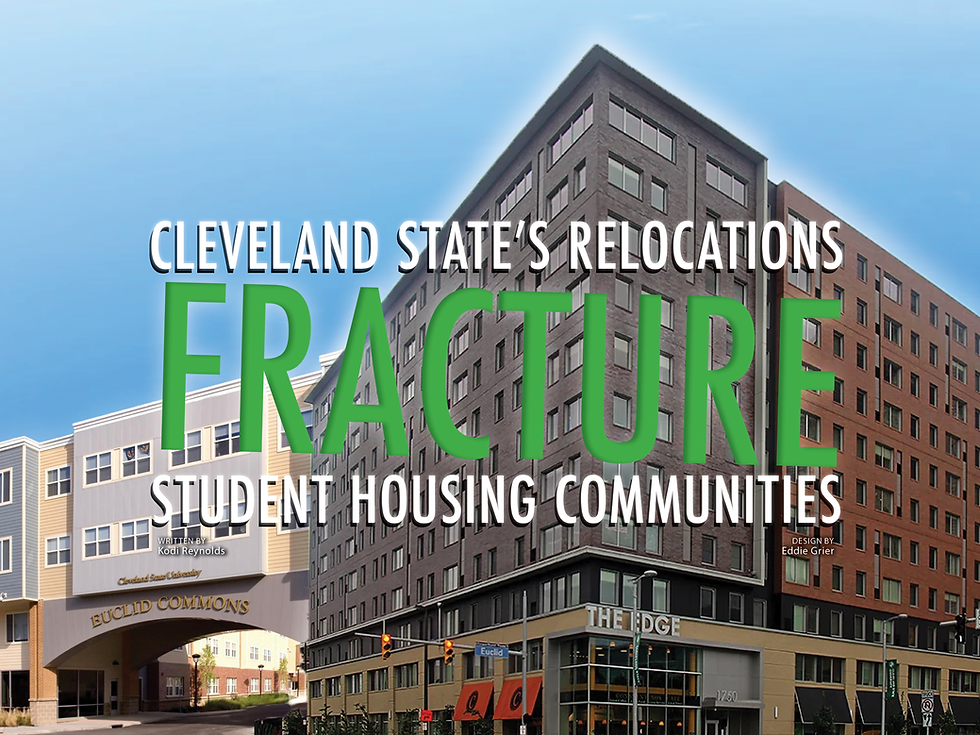Nigerian Lives Matter Too
- Dec 11, 2020
- 3 min read
Written by Claudia Ugbana
Why the rest of the world should be speaking up to #EndSars

The Special Anti-Robbery Squad, commonly referred to as SARS, is a federal police unit created within the Nigerian police force — the unit has drastically evolved over time. Originally created to deal with crimes associated with robbery, motor vehicle theft, kidnapping, cattle rustling, and firearm possession, many have begun to label the unit as a terrorist organization that antagonizes and kills innocent citizens.
The call to end the police force first surfaced in 2017, when activists petitioned the government to abolish the unit as a result of its members’ radical behavior. Nigerian youth accused the police force of unconstitutional harassment, mirroring the very gangs they were instructed to protect citizens from. However, the protests that occurred during the month of October 2017 were unlike anything the country had ever witnessed, causing the hashtag #EndSars to trend across social media platforms, and millions of individuals became acutely aware of Nigeria’s growing turmoil.
On October 4, a video surfaced on social media platforms, showing officers from the SARS unit dragging two civilians out of a hotel building and gunning them down in the streets. The graphic footage sparked outrage among Nigerian citizens living within and outside the county. Across the world, Nigerian citizens took to the streets and social media to aid the movement of speaking up against the police brutality occuring in Nigeria.
In response to the outrage of millions of Nigerians all over the world, on October 11, Nigerian president Muhammadu Buhari announced he would disband the organization. However, many were unconvinced.
A Turning Point
The Nigerian youth continued to voice their outrage with continued protests for several weeks. In that time, the women of Nigeria led the movement front and center. The Feminist Coalition was created, a women-led organization used to fund the movement against police brutality in Nigeria. The organization assisted with the bail-out of peaceful protesters, funding protests occurring across the country, and providing medical aid to individuals who sustained injuries at the protests. The organization raised nearly $400,000 in donations, posting real-time accounting of how the money was spent, an act of accountability the Nigerian people have demanded of the government for years.
Nigerian youth accused the police force of unconstitutional harassment, mirroring the very gangs they were instructed to protect citizens from.
While people praised the Feminist Coalation for their efforts and transparency, the Nigerian government was not pleased. On October 20, the peaceful protests turned bloody when members of the Nigerian army opened fire and murdered at least a dozen protesters gathered at the Lekki Toll Gate in Lagos. The hashtag #LekkiMassacre2020 began to trend across social media platforms, as millions of people expressed their anger and sorrow over the lives lost.
Protesters across the world and within the country demanded an investigation into the massacre, demanding to know who ordered the killings of innocents. Civilians also responded to the massacre with demands for accountability, as the bodies of the individuals murdered that night were reported missing by family members — never to be found.
On October 22, Nigerian president Muhammadu Buhari addressed the nation, condemning both the military for its excessive use of force, and also the youth for coordinating protests that led to this violent act. The address did not, in fact, address the senseless loss of lives or hold any members of government accountable. Instead, it left citizens feeling hopeless, with no resolution in sight.
A Way Forward
The hashtags #EndSars and #LekkiMassacre2020 continue to trend on social media platforms, however the numbers are relatively low compared to how often they appeared during the weeks of the protests. The youth of Nigeria ceased all protests, but occasionally reflect back on the events that occurred during the month of October on their social media platforms.
An investigation into the Lekki Massacre was conducted by CNN, displaying video footage of the carnage. The reception from the Nigerian youth was positive, praising the media organization for conducting the investigation that the Nigerian government promised but never delivered. The report reignited a previously lost hope, proving the massacre was real and holding government officials responsible.
The impact of the movement will never be forgotten, a testament that has been made clear by millions across the world. Although the movement appears to have come to a halt, the youth have made it clear that they intend on regrouping and continuing to demand for their rights. The strength, integrity and power shown by the Nigerian youth has forever changed Nigeria for the better.






